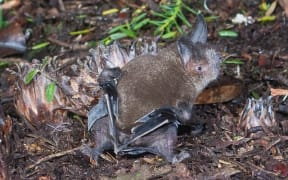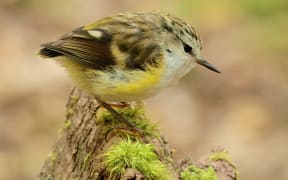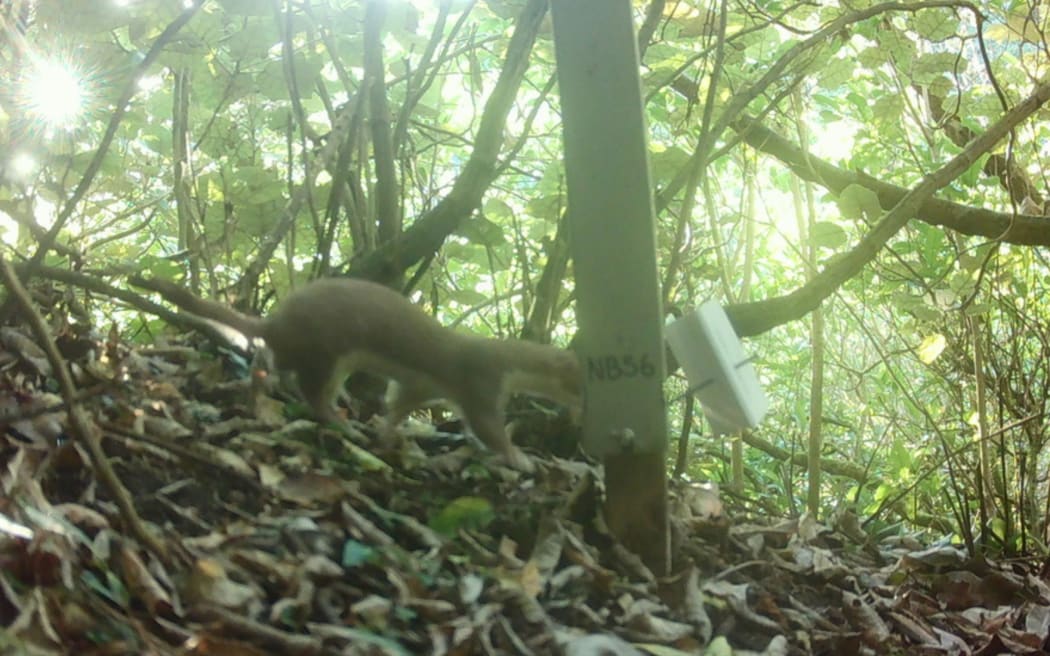
The stoat was spotted on monitoring cameras. Photo: Supplied / Predator Free Wellington
A male stoat has been sighted on the Miramar Peninsula.
Predator Free Wellington said it had been seen by residents and detected on its monitoring cameras.
Project director James Willcocks said re-invasion was a constant threat, but its biosecurity systems were working exactly as planned.
"The monitoring cameras provide us with good intelligence," he said.
"We are able to determine from the photos that it is a male stoat, which is good news, as it means we are dealing with a solitary animal which means there's no risk of breeding."
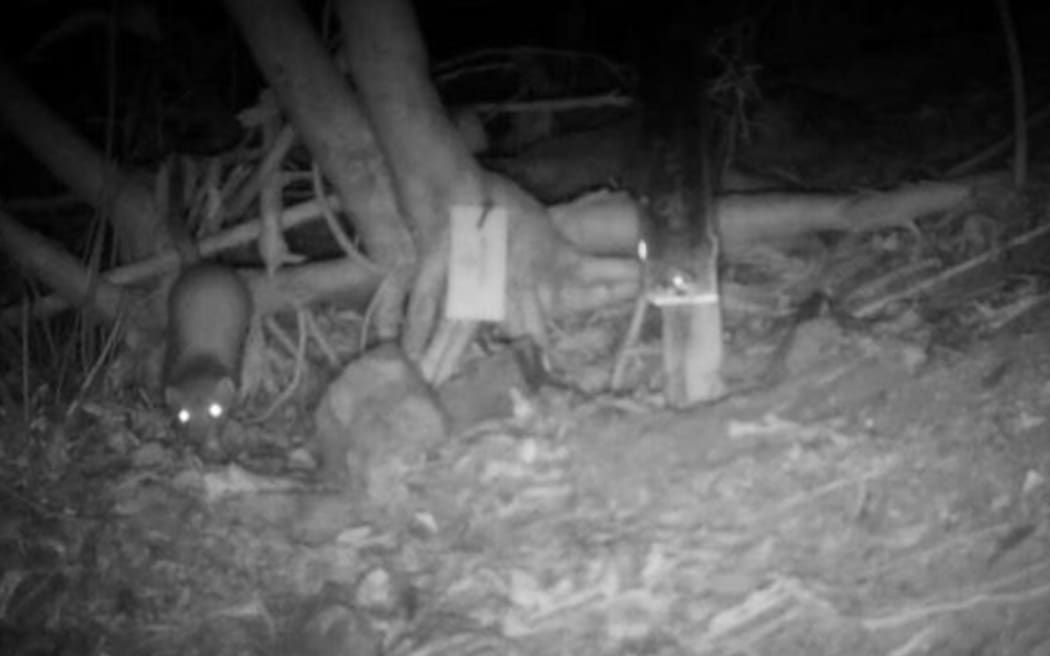
A clever approach is needed to catch a solitary animal, James Willcocks says. Photo: Supplied / Predator Free Wellington
Willcocks said the skill set to catch a solitary animal was very different to general pest suppression.
"A lot of it comes down to mindset and strategy.
"As a world-first multi-species elimination project, we are wanting to ensure we are learning every step of the way and building approaches that can be replicated.
"Our response needs to be clever, it also needs to be cost-efficient.
"A big part of this efficiency is our community approach, we are investing in behaviour change and building capability at a community level."
Predator Free Wellington staff and Predator Free Miramar volunteers had been training in how to find and remove one predator in a large landscape last week.
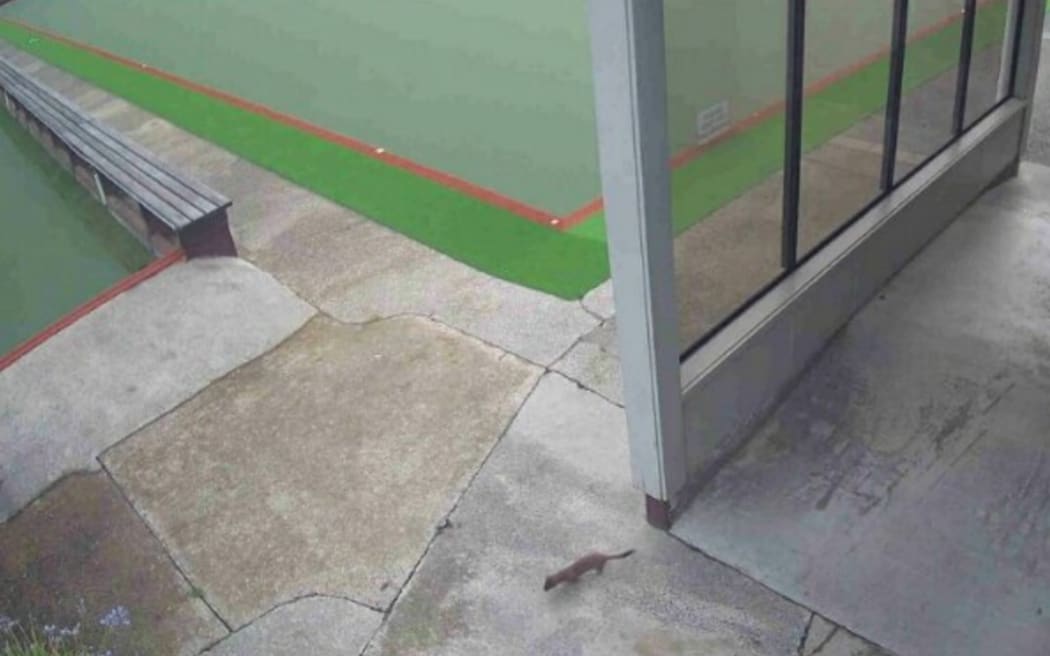
The stoat can be seen scurrying along in the bottom of this photo. Photo: Supplied / Predator Free Wellington
Predator Free Miramar lead Dan Henry said while his team would prefer not to have a stoat on the peninsula, it was an exciting challenge for the volunteers.
"It's what they are trained to do, and we have a good picture of the stoat's movement, and can respond accordingly," he said.
"Our goal is to outwit this animal and not to panic.
"The volunteers will be thinking about the terrain and how the stoat is moving around the peninsula, and we will be moving the right traps into the right place to catch it.
"We will also be using cameras to our advantage."
Predator Free Wellington was asking for the community to report any sightings to their 0800 NO RATS hotline.
